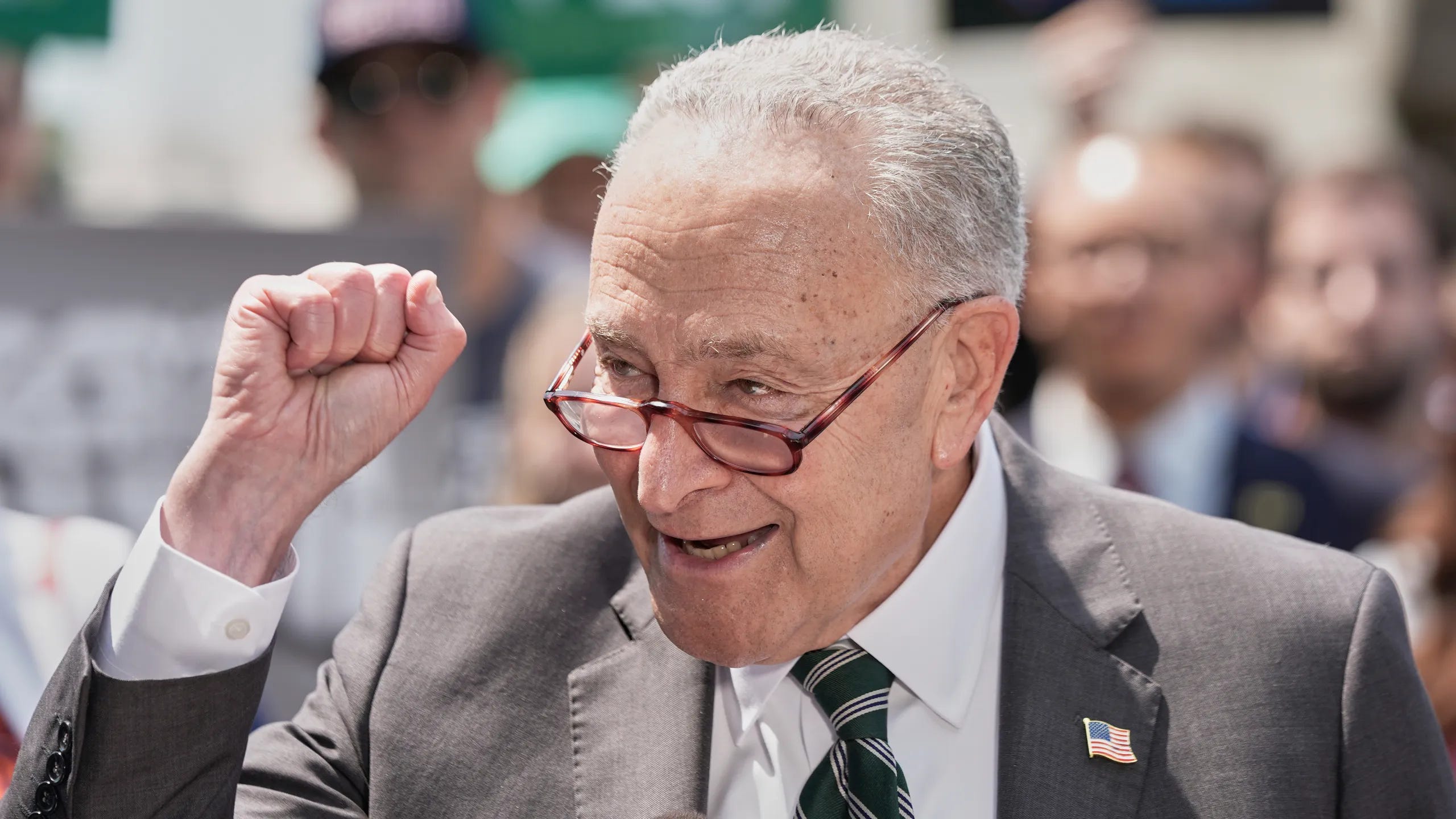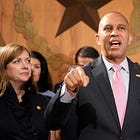The Senate finally got its recess
After a rare Saturday session, senators left town with their full August break—but without a deal on Trump’s nominees, thanks partly to the president’s own Truth Social post.

Senators stayed late and worked through Saturday night but still secured their full August recess.
But they left town without a deal to fast-track a slate of Trump administration nominees despite pressure from President Donald Trump and accusations from Senate Republicans that Democrats are engaged in unprecedented obstruction.
The irony is that it was Trump’s demand to confirm the nominees that kept the Senate in session in the first place, only for a presidential Truth Social tirade to blow up negotiations just as a breakthrough seemed within reach.
“So let’s be clear about what happened. Donald Trump attempted to steamroll the Senate to put in place his historically unqualified nominees, but Senate Democrats wouldn't let him,” Senate Minority Leader Chuck Schumer (D-N.Y.) told reporters on Saturday night. “He bullied us. He cajoled us. He called us names. And he went home with nothing.”
At the heart of the negotiations was a potential trade: Democrats wanted the Trump administration to release previously approved funding for the National Institutes of Health and foreign aid, and commit not to submit another request to claw back congressionally appropriated dollars as it did earlier this summer. In exchange, they offered unanimous consent to confirm a group of noncontroversial nominees stuck in the Senate backlog.
Senate Majority Leader John Thune (R-S.D.) called Democrats’ refusal to confirm the nominees a subversion of the will of the voters who elected Trump and said that many of the president’s picks weren’t problematic.
“A lot of the nominees on the current backlog are nominees who have bipartisan support. In some cases, broad bipartisan support, multiple Democrats voting for these nominees coming out of the committee,” he said in a floor speech on Saturday morning. “We’re just simply saying, treat this president, at least on some level, in the way that previous presidents, both Democrats and Republican presidents, have been treated in the past by both Republican and Democrat Senates.”
Schumer unsurprisingly saw it differently.
“Historically bad nominees deserve historic levels of scrutiny,” Schumer said during a speech after Thune’s. “We have never seen nominees as flawed, as compromised, as unqualified as we have right now. And the Republican senators know that.”
The White House ultimately dismissed the Democrats’ offer. Administration officials were reluctant to unfreeze the funds and pushed to include several of Trump’s more contentious nominees in the deal. Depending on whom you asked, a breakthrough was either within reach or a long shot.
But after Trump took to his social media app to lash out at Schumer for engaging in “political extortion” while publicly rejecting any compromise, the path forward evaporated.
Without a deal, the Senate proceeded to a final 13-vote series to confirm a group of seven nominees, including former Fox News host Jeanine Pirro to be U.S. Attorney for the District of Columbia, Thune’s son-in-law Luke Lindberg to be Under Secretary of Agriculture for Trade and Foreign Agricultural Affairs in the USDA and former Rep. Marc Molinaro (R-N.Y.) to lead the Federal Transit Administration. (In a sign of senators smelling jet fumes, the procedural votes for each nominee after Lindberg were withdrawn to speed up the series.)
When Senate Republicans return from August recess, they’re expected to either vote to shorten the debate time on the remaining nominees or allow groups of nominees to be advanced out of committee and confirmed on the floor.
Without Democratic support, Republicans would have to adopt this change with a simple majority, a process known as “going nuclear” that erodes minority protections, invites retaliation, and turns the Senate into a bare-majority body where today’s win becomes tomorrow’s vulnerability.
“It would be a huge mistake for them to do it,” Schumer said of a possible rules change. “Because when they go at it alone, they screw up for the American people and for themselves.”
What won’t occur in August are recess appointments, another proposal from some GOP senators and Trump administration officials that would have allowed the president to temporarily fill his vacancies without Senate confirmation while the Senate is in recess. This would have required the House to return from its recess to formally adjourn, which would have been a logistical nightmare. It’s all a moot point since the Senate will hold pro-forma sessions every three days with no business conducted to prevent the chamber from going into recess.
In addition to potential rules changes, the Senate will have a full legislative calendar upon its return to Washington after Labor Day. The first vote senators will take will be a procedural motion on the annual defense policy bill known as the National Defense Authorization Act.
The Senate will also need to reach an agreement with the House and Trump administration on government funding before the new fiscal year starts on Oct. 1. The Senate made progress this week in passing three of the dozen annual funding bills for military construction and veterans affairs, the Agriculture Department and FDA, and Senate operations with overwhelming bipartisan margins. (The House has passed two funding bills—MilCon-VA and Defense—but is advancing bills out of committee on party-line votes that fund the government at levels far below the Senate.)
Schumer told reporters that he and Thune have talked vaguely about broad issues related to government funding.
“The bottom line is what we ought to be doing in September is making sure we do the appropriations bills in a bipartisan way,” he said. “We ought to be making sure that we protect the American people from the hard-right craziness that just hurts them all the time, and the only way to do that is bipartisanship.”



